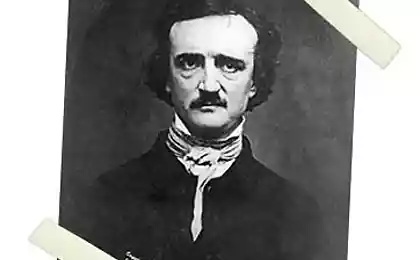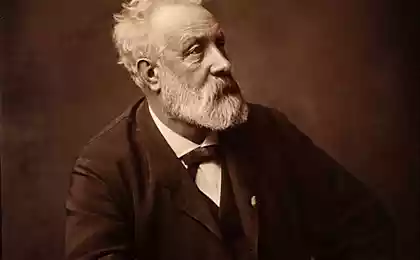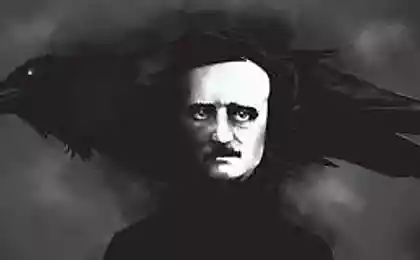754
Chuck Palahniuk about the words that a writer should forget

After six seconds you will start to hate me.
But after six months, you will write better.
From that moment - at least in the next six months - I forbid you to use mental verbs. That is, "think", "to know", "understand", "be aware", "believe", " want "," remember "," pose "," wanting "and hundreds of others, which you love so much recourse.
The list must also enter "love" and "hate».
And: "to be" and "to have". But we'll come back to them later.
Until Christmas, you can not write: "Kenny wonder if Monica was angry last night that he left».
That is, you have to write something like: "Then, in the morning Kenny was away, waiting for the last bus, until not take a taxi and returned home, where he saw, Monica pretending to be asleep - pretending, because she could never sleep then in the morning. She always put just his cup of coffee in the microwave. Do it ».
Instead of making heroes who know something, you have to come up with details that will help the reader to get to know them. Rather than force the character wants something, you have to describe it that way, is that the reader wants.
No need to write "Adam knew he was like Gwen." Much better "Between lessons Gwen leaned against his locker when he came to it to open. She rolled her eyes and slowly went away, leaving a trail of black heels on the painted metal and the smell of her perfume. Code lock still keeps the warmth of her ass. At the next break, Gwen will again be here ».
no reduction. only specific emotional parts: the action, smell, taste, sound and feeling.
Generally, writers have resorted to the thinking in the early part of the verbs. (In this way they become a kind of "reporting forms", and I'm still against it shall explain later.) That is, they set from the very beginning of the whole intention. And that should be on - it's like an illustration.
For example, "Brenda knew she would not have time. Since the bridge was a traffic jam. She sat phone. At home waiting for the dog, which had to even walk, or there was a mess. In addition, she promised the neighbors water their flowers ... "You can see how the first sentence pulls the meaning of the following? Do not write that. Move it to the end. Or change "Brenda would never have time to just in time».
Think abstractly. Knowledge and belief are immaterial. Your story will be stronger if you show only the physical action and materially embody the distinctive features of your heroes, and allow the reader to think and know. And also to love and hate.
Do not tell the reader: "Lisa hates Tom».
Instead, give a specific example, as a lawyer at the trial, detail to detail. Consider the evidence. For example: "During the roll call, the moment when the teacher mentioned the name of Tom, and he has not yet had time to answer," Here, "Lisa whispered loudly:" Podtertaya ass "».
One of the most common mistakes new writers is that they leave their heroes alone. You write - and you can be alone. The reader reads - it can also be one. But your character should not be left alone. Because then he'll start to think, worry about and interested in.
For example: "Waiting for the bus, Mark began to worry about how long the trip ...»
But it is better to write: "According to the schedule the bus was to come in the afternoon. Mark looked at his watch - it was 11:57. From here the road was visible to the shopping center, but the bus was not on it. Without a doubt, the driver parked on the other side and took a nap. Driver asleep, and Mark was about to be late. Or worse, the driver was drunk - and Mark gave their seventy-five cents to die in a road accident ... »
When the hero alone, he can start to dream or something to remember, but even then you may not use mental verbs or some of their abstract "family».
And do not verb "forget" and "remember».
No need for any type of transition "Wanda remembered Nelson combed her hair».
Better: "Then, in the second year, Nelson spent her sleek, long hair with his hand».
Again - stands for do not write short.
Even better - quickly push down the one hero to another. Let them meet and start the action. Let their actions and words to show their thoughts. And you stay away from their heads.
When you start thinking to avoid verbs with great care using fresh verb "to be" and "to have».
For example: "Anne's eyes were blue," "Anne had blue eyes».
Better way: "Anne coughed and began to swing in front of his face to ward off the cigarette smoke from his blue eyes, and then smiled ...»
Instead of the pale, claiming "to be" and "to have" try to uncover the details of the portrait of his hero through actions and gestures. Then you show your story, not just tell her.
And then you learn to decipher their heroes and hate lazy writers who are limited to "Jim sat by the phone wondering why Amanda does not ring».
Please. From this point you can hate me, but do not use mental verbs. I bet after Christmas, you do not want to return to them.
The homework for this month.
Throw thought of every sentence the verb: remove it, "decode." Then walk the same for any fiction. Be ruthless.
"Marty has presented as a fish jumping in the moonlight».
"Nancy remembered how to taste the wine».
"Larry knew he was a dead man».
Find them and rewrite. Make phrase stronger.
via www.cinemotionlab.com/novosti/02649-chak_palanik_o_slovah_kotorye_dolzhen_zabyt_pisatel/
























